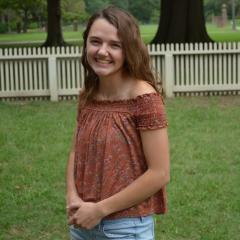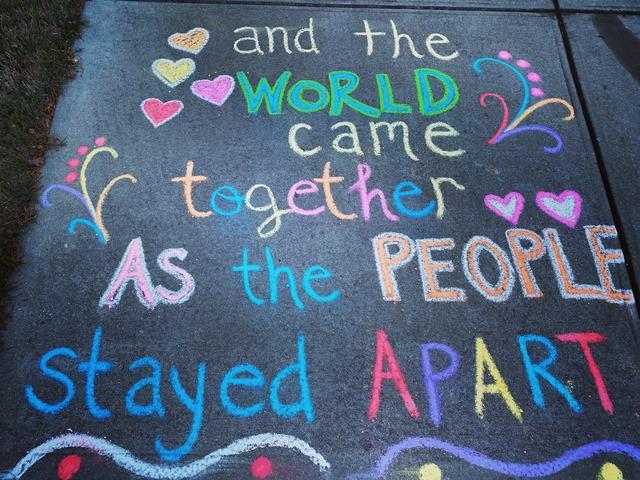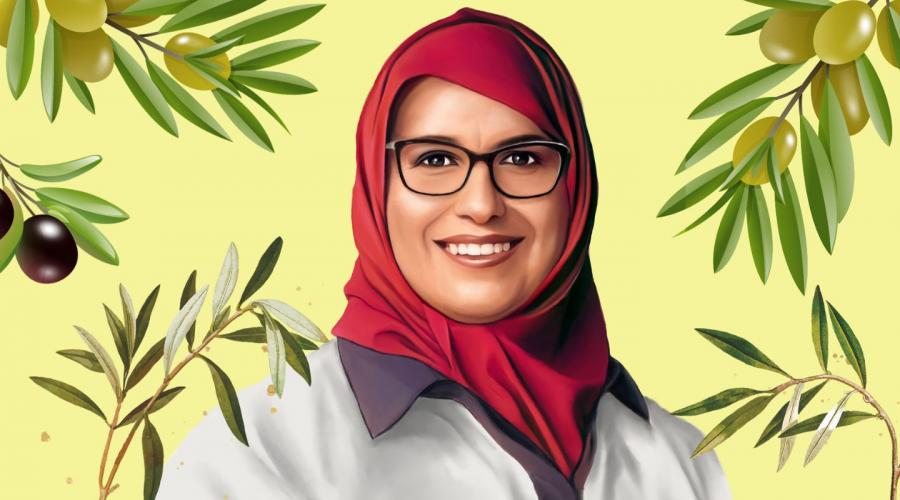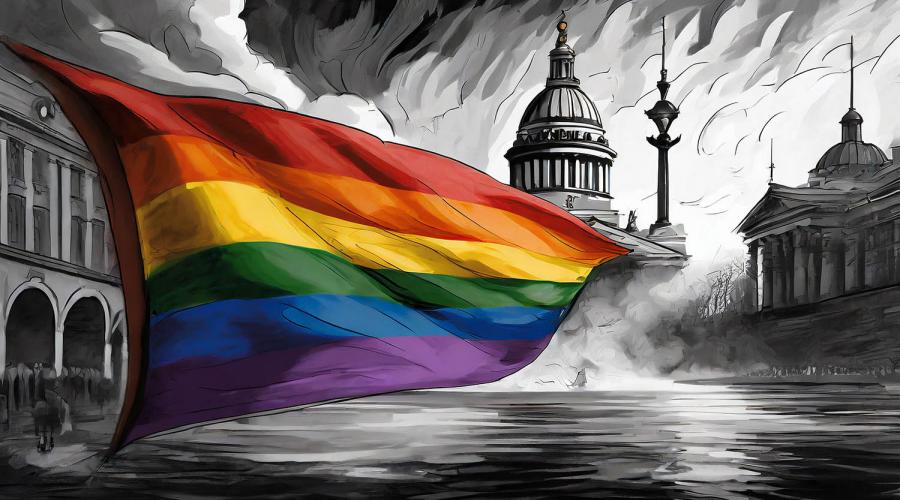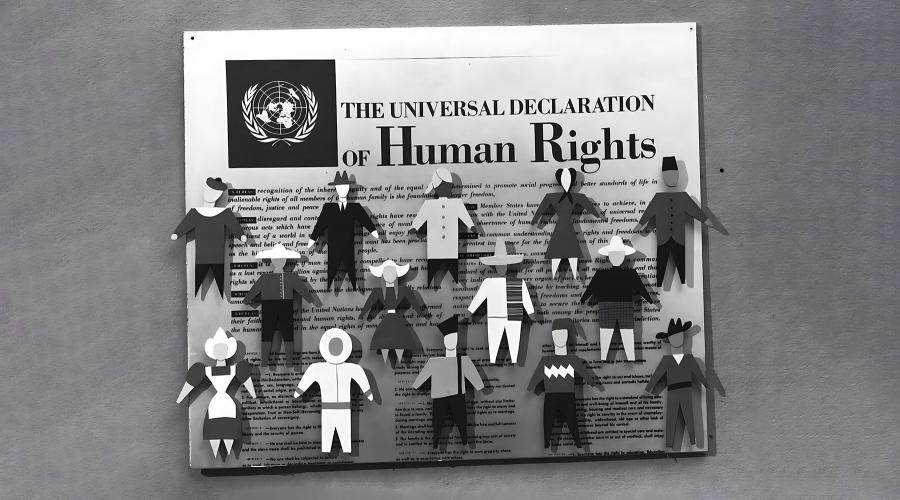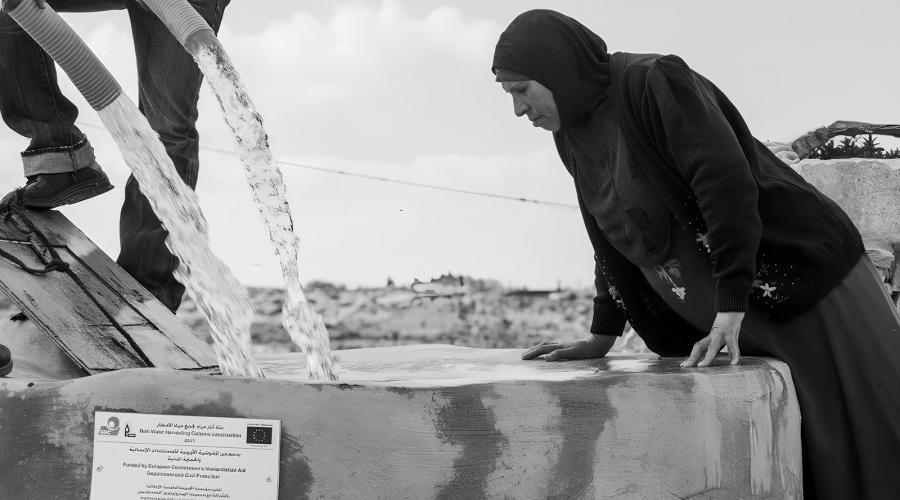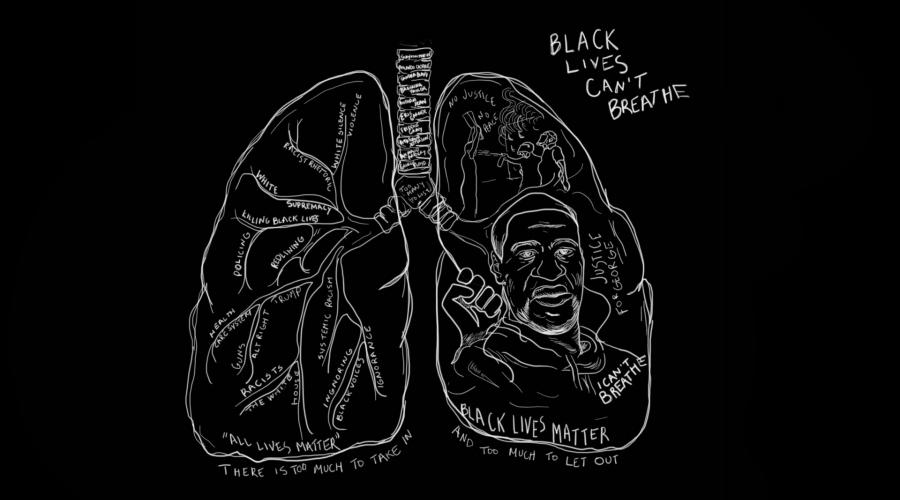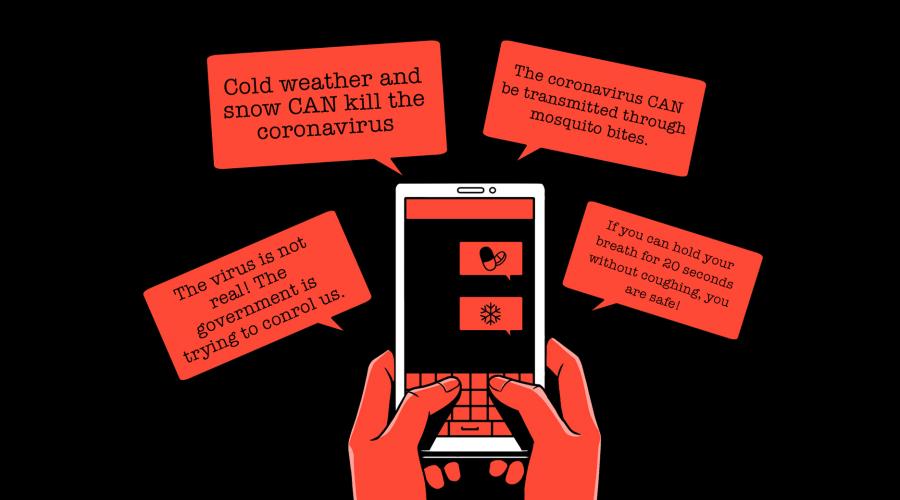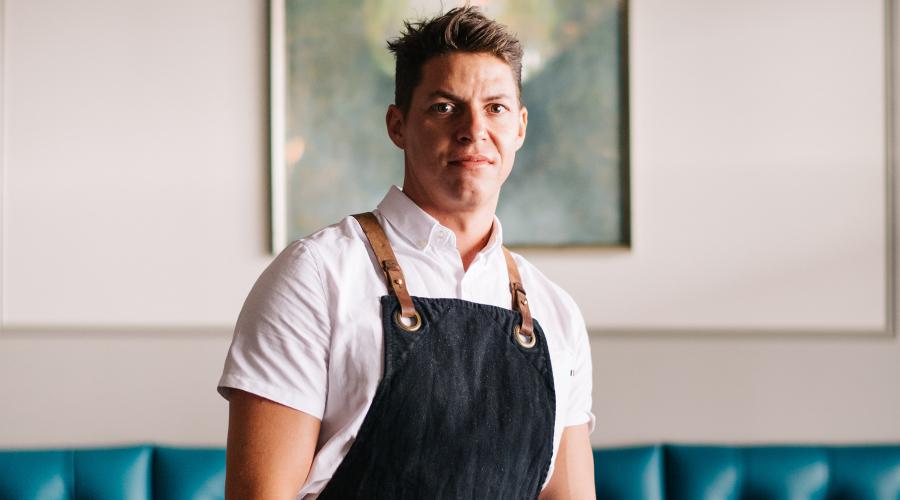Combating crisis with kindness: stories of hope and support from around the world
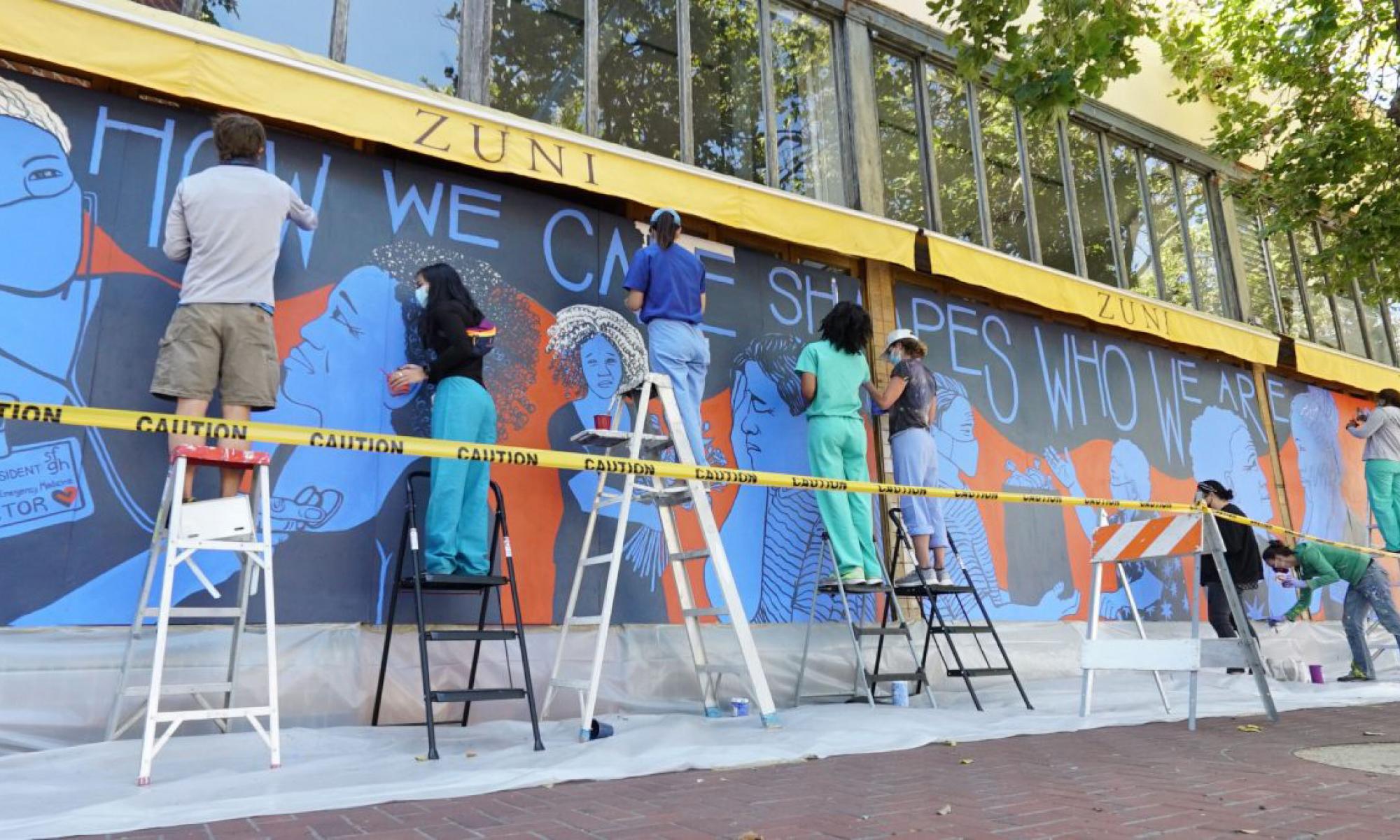
Californian organisation Paint The Void is collaborating with artists to invigorate boarded up storefronts.
During times of tremendous turmoil and loss, performing and sharing acts of kindness reminds us of our duty to care for and inspire one another.
While the COVID-19 pandemic has tempted many to surrender hope, countless resilient individuals have defied that urge, viewing increased suffering as an opportunity to expand their outreach and promote kindness in their communities.
Their initiatives, large and small, have brightened the otherwise bleak pandemic by enabling people to combat isolation and remain supported and connected to those around them. From gardening to letter writing to promoting creativity, here are seven recent, heartwarming stories that we hope will engender further generosity, compassion and perseverance in our world, one act of kindness at a time.
A couple build a backyard “Corona Garden”
Growing and distributing food has become an increasingly important means of finding solace and serving others during the pandemic.
George and Michele Assimakopolous, a couple from Virginia, US, recently finished constructing an organic, raised-bed garden in their backyard, endearingly titled, “Michele’s Corona Garden.” When the two began spending more time at home due to lockdown restrictions, George got to work transforming his wife’s dream of growing fresh produce into a reality.
“Michele wanted [the garden], and that was enough of an incentive for me to build it," George said. After hearing what Michele hoped to plant, he started measuring dimensions, sketching plans and buying lumber. “I have soft carpentry skills, but they do exist, and I love doing projects around the house," George said. Several delayed orders and a few miscalculations later, George finished construction and presented to Michele a beautiful space teeming with potential.
“[Tending to the garden] is something we do together,” George said.
“We’re having a lot of fun with it,” Michele added. “It’s exciting [because] we [get to witness] change and growth.”
Once the harvesting season arrives, George and Michele hope to share their excess produce with friends, family and neighbours. They enjoy sharing meals with their kids, who abruptly returned home when the pandemic emerged, and cherish their garden as a meaningful addition to their lives.
“[We've created] something that will last,” George said. “It will give back to us for years to come.”
New Zealand boxer launches food bank for those in need
Seeking similar abundance, professional New Zealand-based boxer Dave Letele recently transformed the gym space belonging to his non-profit organisation, Buttabean Motivation (BBM), into a warehouse stocked with food donations available for those needing sustenance. Primarily serving frontline workers, families that have been affected by job loss and illness, and churches and soup kitchens, volunteers at the BBM food bank package and distribute weekly food parcels and “encourage people to reach out and ask for help if they are struggling.”
“We [at BBM] know the [challenges] of families living in hardship and [are especially aware] that food insecurity exists,” Dave said. “When the New Zealand government announced [a] nationwide lockdown, I knew that BBM had to take action and do something to support families… who desperately needed [to eat].”
BBM, through their food bank efforts and other initiatives, strives to erase the “stigma and shame” that often surround asking for assistance. “We’re cultivating generosity in our communities by giving [to others] and passing no judgment [on them],” Dave said. “[BBM is] a safe space for [everyone].”
A food bank launched by New Zealand boxer Dave Letele supports those most impacted by COVID-19
Letter writing connects college students and chronically-ill adults
Letter writing has also become more prevalent during the pandemic, as people have reached out to support loved ones and vulnerable populations whom they can no longer interact with in person.
Lori's Hands, an organisation based in Delaware, US, that serves adults living with chronic illnesses, has recently established a “Green Ribbon Pen Pal” program to allow their university student volunteers to exchange thoughtful, encouraging notes with Lori's Hands’ clients weekly. Prior to the pandemic, student volunteers would visit clients at their homes to assist them with grocery shopping, cooking, landscaping, scheduling appointments and more. In return, the clients would share stories, insights and advice, allowing consistent, meaningful relationships to form between themselves and the student volunteers with which they were interacting.
When the pandemic rendered face-to-face communication dangerous, particularly for immunocompromised seniors, Lori's Hands responded by creating an avenue for volunteers and clients to maintain their connections with one another.
"We have a volunteer and [a] client writing to each other who both love to garden, and they’ve been exchanging tips and photos of their plants," Lori's Hands representatives shared in an email to The Lovepost. "We have another pair who both like word games, so they’ve been sharing puzzles with each other in their letters."
Despite having to adapt their traditional routines, Lori's Hands volunteers and clients are still striving to communicate with and encourage one another.
“The pandemic has forced us to get creative and test new ways to build and strengthen a sense of community,” Lori's Hands representatives wrote. “Through phone calls, snail mail, text messages, video chats, distanced grocery drop-offs, and any other modes our [innovative] clients and students come up with, our Lori’s Hands community is making the best of this challenging situation and continuing to find ways to connect.”
A Facebook group makes assistance accessible globally
Community support groups have spread across social media since the pandemic began, offering aid and advice to anyone seeking relief.
Caremongers India, a Facebook page created by Mahita Nagaraj, serves as a valuable platform for those seeking assistance to locate the help and resources they need. Inspired by the “caremongering” trend circulating around Canada when the pandemic emerged, Mahita founded the group in an effort to “spread love and kindness rather than panic and fear.”
When India enacted their nationwide lockdown, Mahita began receiving calls from friends who were concerned about securing medication and other essentials for their elderly parents. After posting on her personal Facebook page about her willingness to check in on individuals around Bangalore, where she resides, people across India began messaging her, some requesting help and an overwhelming number of others expressing their desire to offer assistance, creating the perfect foundation for Caremongers India.
In just a few months, the group has expanded to include over 50,000 members from more than 100 countries around the world.
“It has been truly wonderful to see… how everyone [has] step[ped] up to fulfil the requests of complete strangers and… help in whatever manner they can,” Mahita said. “That [kind of] positivity is simply irreplaceable."
Volunteer “caremongerers” are continuing to work around the clock to ensure that community members are cared for, bringing food, medication and sometimes just their company to those most severely affected by the pandemic.
“At its very core, Caremongers is a group that aims to assist people in need,” Mahita said. “Despite the isolation and social distancing, only strength as a community can help us all—individually and collectively—get through this.”
Chalk Your Walk Week in Wake Forest, North Carolina, encouraged walkers to decorate sidewalks with uplifting messages
A “Chalk Your Walk Week” sprinkles neighbourhoods with positive messages
Artistic initiatives have also inspired kindness, as leaders of towns and cities have introduced opportunities for people to create alongside their neighbours.
The town of Wake Forest, North Carolina, in the US hosted a “Chalk Your Walk Week” in April, inviting families to decorate their driveways and sidewalks with “uplifting messages” to spread hope throughout the Wake Forest community. Participants were encouraged to post photos of their artwork on social media using the hashtag #staystrongwf and were praised on the town's Facebook page for "brightening everyone's day" with their vibrant illustrations.
Local artists introduce hope amidst devastation
In California, Paint the Void has been providing local artists with stipends to paint murals on recently boarded-up storefronts across San Francisco. The organisation, founded by Inga Bard, Shannon Riley, Meredith Winner and Lisa Vortman, has made possible the creation of over 100 murals and has visually and spiritually rejuvenated much of a city devastated by COVID-19.
Between vibrant pieces bursting with colour and reflective designs rich with powerful messages, Paint the Void artists are gradually infusing the “void created by [the pandemic]” with new life. As the “Messages of Hope” video on Paint the Void’s website preaches, “art is healing, art is unifying, art is powerful and now, more than ever, art is essential.”
Arts organisation adapts to continue caring for the vulnerable
In Liverpool, UK, Adele Spiers has been serving disadvantaged groups through Sola Arts, the organisation that she co-founded in 2004 to support refugees, victims of modern-day slavery, those affected by mental illness, children in foster care, minority ethnic communities and more. As Managing Director and Senior Arts Psychotherapist, she provides creative platforms for these marginalised individuals to connect with and share their experiences without feeling stigmatised. When the pandemic halted their in-person programs, Adele and her team had to get creative and find ways to continue to aid their clients.
“We've had a massive shift of focus [since the pandemic began],” Adele said. “We could've shut down and gone into furlough, but because we work with people in crisis, we decided we wouldn’t put our staff in crisis and [that] we would use whatever funds we've got to continue [providing for them and for our community].” To honour this mission, Sola Arts has begun distributing “food and art packs” to families across Liverpool that contain everything from nutritious staples to rainbow-coloured sidewalk chalks.
Sola Arts recently acquired an "arts and crafts van" that they will use to travel to clients and enable more people to access their art therapy services. Instead of shrinking beneath the pandemic's limitations, the Sola Arts team has chosen to expand their efforts and continue to spread much-needed and valued kindness to those they serve.
“We've not grown smaller [because of the pandemic],” Adele said. “We've grown bigger as a result.”

